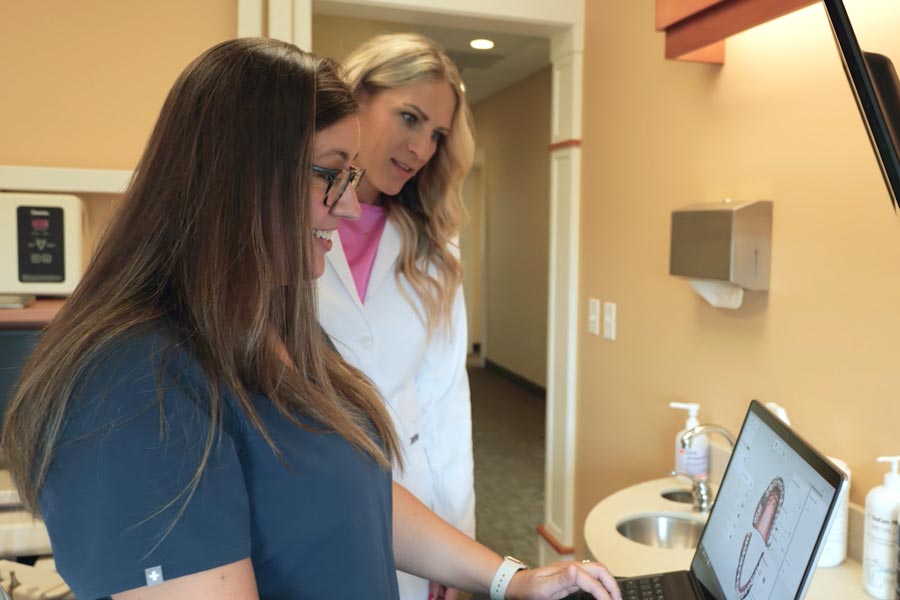
Don’t ignore tooth pain! Pain is your body’s way of telling you something is wrong. If you suspect you need an emergency root canal, don’t hesitate to call our office. Our dentists act quickly to find the source of pain and offer emergency dental care.
Suspect you may need a root canal? If you recognize any of the symptoms below, call our dentists immediately. We offer the as the last resort to save an infected tooth before extraction.
First, one of our dentists will examine your teeth and gums. They’ll also take X-rays to determine if you need a . Some patients need root canal therapy if a cavity is deep enough to penetrate the dental pulp. The pulp is the innermost chamber of your tooth that’s made up of live tissue.
If we determine you need a root canal to save your tooth, we’ll prep you for the procedure immediately. We’ll start by numbing your tooth so you won’t feel any pain or discomfort. Next, we’ll drill a hole near the top of your tooth so we can remove diseased tissue.
Once the inside of your tooth is clean, we’ll flush it out with water and fill it with a material called gutta-percha. Our dentists will then place a temporary cover over your tooth. This will protect your tooth until we’re ready to place your permanent dental crown. The root canal crown will restore the look and function of your tooth.
You may need a root canal if you have deep decay, repeated dental procedures on the tooth, a cracked tooth, or trauma that has damaged the tooth’s pulp. Signs include severe toothache, prolonged sensitivity, and swelling.
Modern root canal procedures are typically painless due to local anesthesia and advanced techniques. Most patients experience little to no discomfort during treatment, though mild soreness may occur afterward.
Most root canals can be completed in 1-2 appointments, each lasting 60-90 minutes. Complex cases involving multiple roots or complications may require additional visits.
After treatment, you’ll likely need a crown to protect the weakened tooth structure. You may experience mild discomfort for a few days, which can be managed with over-the-counter pain relievers.
The main alternative is tooth extraction followed by replacement with an implant, bridge, or partial denture. However, saving your natural tooth with a root canal is usually the preferred option when possible.
Our dentists in Grandville, MI, are accepting new patients! To request an appointment, call the Grandville Dental Health Center at (616) 739-6001.